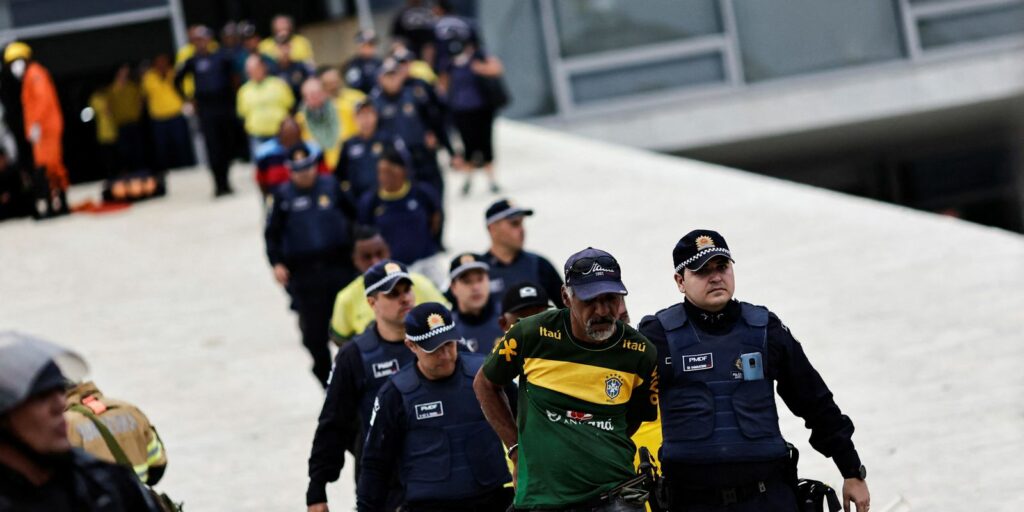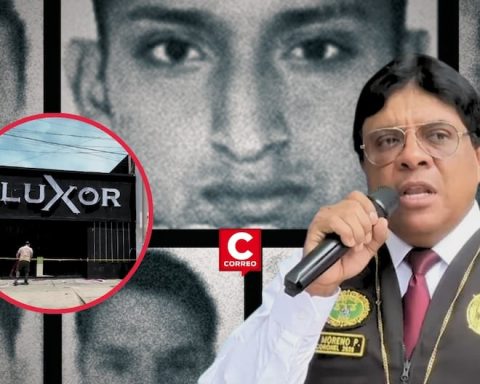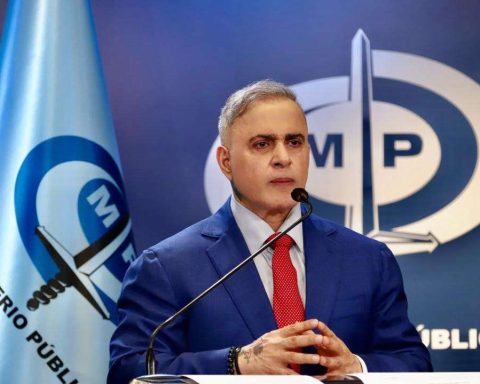-In recent days, various institutions have been consulted about the possibility that the pardons granted by President Boric could be revoked and, if so, the question that follows is which institution will have the power to do so. In your opinion, what institution can put the bell on the cat?
-There are various entities that have ruled today, various agencies, including the Supreme Court. Others have said that it can also be an investigative commission; others, that it be the Constitutional Court that can rule on whether or not it is possible to revoke this decree. Others have also raised the possibility of constitutionally charged certain government officials. I believe that it will not be the Supreme Court, nor an investigative commission, nor a constitutional accusation, nor the Constitutional Court that is going to solve this matter. This issue, I believe, will be settled by the comptroller, that is, the fate of the pardons is on the comptroller’s table.
– What is the attribution of the Comptroller’s Office on pardons?
-The revocation power is regulated in the Administrative Procedure Law, but with an evident lack of regulatory density. Said norm prescribes that administrative acts may be revoked by the body that has issued them, limiting or excepting this invalidation when the administrative act has created or declared rights to a party, as would be the case of having granted and notified this right to those pardoned. . However, the revocation or the declaration of illegality of the administrative act can come from another body. In effect, it is a fact that the Comptroller’s Office, in the exercise of its external control function, can and must supervise the legality of the acts of the State Administration and, in compliance with that function, has proceeded to request a report from the Ministry of Justice, in order to analyze in detail the 13 pardons granted. for what purpose? Analyze its legality and adherence to the Constitution and the law.
-How do you interpret the request made by the Comptroller’s Office to the Ministry of Justice, so that it puts at your disposal all the administrative acts on the occasion of the pardons?
-I believe that the comptroller will verify the concurrence that these pardons do not violate the grounds for refusal established in article 4 of Law 18,050. For this, the Ministry of Justice has a period of 10 business days to report what happened in the issuance and preparation of these decrees, all the files with each of the folders of those pardoned. These days are counted from today. After that, that is, once the Comptroller has all the background information, it will issue a statement on the matter.
-One of the main criticisms of the procedure that was carried out of the pardons, is that these, especially in the case of Jorge Mateluna, were not founded. What is your opinion?
-The first thing that should be noted is that I consider that the power of the President of the Republic to pardon is well applied, it is a unique and exclusive prerogative, in this case, of the President of the Republic, who is in a legal vehicle. This decision is contained in a legal vehicle called an administrative act, called a founded supreme decree, and this decree that has been processed and, in this case, has been communicated to the beneficiaries, who are the defendants, toNow, in my opinion, these decrees are founded, that is very clear. But at this point I have no doubt that the comptroller is going to deepen the analysis, that is, what I think the comptroller is going to do is put a magnifying glass on verifying if the legal requirement of being, first, duly founded and Second, it will verify if the standard of motivation and justification of the same is sufficient to comply with Law 18,050, which is the Law of Pardons.
-From what you point out, the comptroller, Jorge Bermúdez, yes or yes, is going to issue a pronouncement on the matter.
-In effect, based on the principle of inexcusability, the comptroller takes action in administrative matters, he cannot excuse himself from issuing a pronouncement, that is a principle of administrative law that the comptroller has always applied and, therefore, I believe that here we are going to have a resolution that is going to come from their side and, therefore, the fate of the pardons today is at the comptroller’s table. On this day, not only does the entire public administration and, in particular, the Ministry of Justice have power of empire in this case, but it also enjoys recognized prestige in doctrine, that is, we are facing a comptroller with a Division Very agile and pragmatic legal, with a management that I would say has revitalized the Comptroller’s Office over time, and whose decisions arrive on time, to the point that I would say that its administration terms are faster than those of ordinary justice . That is why I dare to say that I believe that the fate of these pardons is currently at the comptroller’s table, and it will not be the Supreme Court, it will not be the Constitutional Court, nor an investigative commission, nor a constitutional accusation that resolve this issue.
-And what paths would I have ahead? Can the comptroller revoke pardons?
-The controller has two paths. The first, could declare the legality of everything done in terms of pardons and with that this stage is closed, which has already been long enough; or, secondly, he could well declare the illegality of the supreme decree founded by which the pardons were granted. Once the latter has occurred, that is to say, the illegality being declared, it could require the Ministry of Justice to initiate an invalidation procedure of these decrees. In fact, this would not be the first time that it has happened, as we remember that, at the end of the Government of Sebastián Piñera, the Comptroller’s Office declared illegal the decree with which said Government sought that the Armed Forces collaborate in the prevention of crimes in the Southern Macrozone, and the controller rightly declared this illegal, therefore, the figure could also occur here.

















